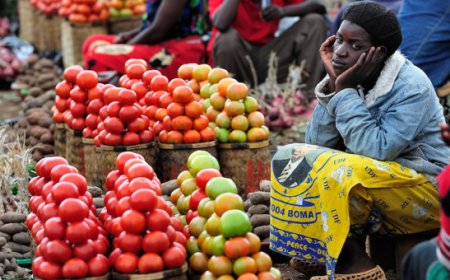Addressing Critical Public Health Concerns in Ghana: Insights from the DHS Report
Explore the overlooked public health issues revealed by the Ghana DHS report, including infant feeding practices, obesity among women, and the threat of NCDs. Learn about initiatives like A4H and HD4HL working to combat these challenges.

The recent release of the Ghana Demographic and Health Survey (DHS) report has brought to light critical issues regarding infant and young child feeding practices, as well as the alarming prevalence of overweight and obesity among Ghanaian women. However, much of the media coverage has been focused on sensational topics, such as adult sexual behaviors, thereby overshadowing these vital public health concerns.
Key findings from the report indicate concerning trends, including the high prevalence of anemia among Ghanaian women, early introduction of sweetened beverages to infants and young children, and the consumption of unhealthy foods by a significant portion of children aged 6–23 months. These practices pose serious threats to the health and well-being of children, contributing to issues like childhood obesity, dental caries, and metabolic disorders.
Furthermore, the increasing rates of overweight and obesity among Ghanaian women highlight a growing public health crisis that requires urgent attention. The link between consumption of health-harming foods and non-communicable diseases (NCDs) is evident, with hypertension and diabetes already posing significant challenges in Ghana, particularly in urban areas like the Accra Metropolis.
Efforts to address these issues are underway through initiatives like the Advocating for Ghana’s Health (A4H) and the Healthier Diets for Healthy Lives (HD4HL) Project. These projects aim to tackle the rising threat of NCDs by promoting healthier dietary choices and implementing evidence-based policies. By collaborating with various stakeholders, including government agencies and civil society organizations, these projects seek to create tangible solutions to combat the double burden of malnutrition and NCDs.
One of the key strategies employed by the HD4HL Project is the promotion of WHO "Best Buys," which are evidence-informed cost-effective actions or policies recommended for combating NCDs in low- and middle-income countries (LMICs). By advocating for these policies, the project aims to create healthier food environments that encourage individuals to make healthier dietary choices and protect them from obesogenic environments.
To maximize the impact of these efforts, it is crucial for the media to play an active role in raising awareness and disseminating information about the importance of healthy diets in preventing NCDs. By highlighting the findings of the DHS report and the initiatives aimed at addressing these issues, the media can contribute to fostering public understanding and support for efforts to improve maternal and child health and combat NCDs in Ghana.
What's Your Reaction?





































































